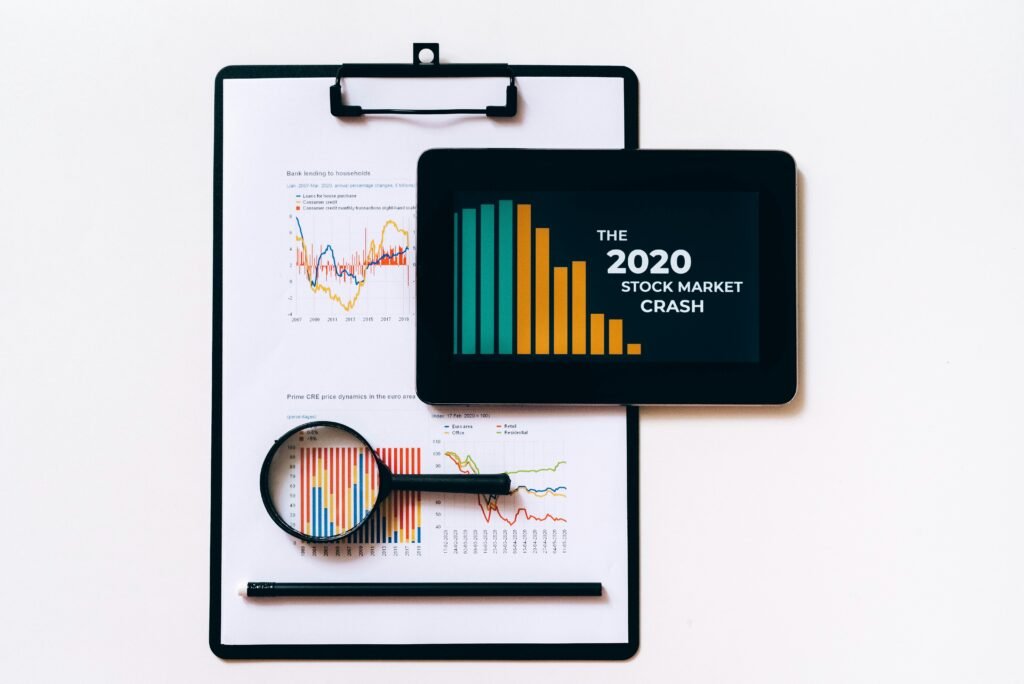Table of Contents
Introduction: Why You Need a Recession-Proof Financial Plan
A recession can bring economic uncertainty, impacting jobs, incomes, and investments. Preparing a recession-proof financial plan isn’t about predicting when a recession will hit; it’s about building resilience in your finances. By strategically preparing, you’ll feel more secure, no matter the economic climate. This guide will walk you through steps to create a robust financial plan that can withstand the ups and downs of any recession.

Understanding Economic Cycles: What Is a Recession?
To create a recession-proof financial plan, it’s helpful to understand what a recession actually is. A recession typically refers to a period of economic decline marked by falling GDP, rising unemployment, and reduced consumer spending. By understanding the cycles of economic expansion and contraction, you can better anticipate potential risks and take proactive steps to protect your finances. Recognizing these cycles allows you to make smart choices to shield your finances from the volatility that recessions bring.
Assessing Your Current Financial Health
Start building your recession-proof financial plan by assessing your current financial situation. Take stock of your income, expenses, savings, and debts. A clear picture of your financial health helps you identify weak spots, such as high-interest debts or inadequate savings, that may make you vulnerable during a recession. This self-assessment will serve as the foundation for making necessary adjustments to strengthen your financial standing before the next recession hits.

Building an Emergency Fund: The Foundation of Financial Security
An emergency fund is crucial in a recession-proof financial plan. This fund is a safety net that allows you to cover unexpected expenses—like medical bills or job loss—without relying on credit or dipping into investments. Financial experts suggest saving enough to cover three to six months’ worth of expenses, but the more you can save, the better. In a recession, having an emergency fund can provide peace of mind and financial stability.
Diversifying Your Income Sources: Side Hustles and Investments
Relying on a single income source can be risky, especially in a recession when job security may be uncertain. By diversifying your income—through side gigs, freelance work, or passive investments—you create multiple income streams that reduce your dependence on any one source. This strategy not only strengthens your recession-proof financial plan but also helps you weather income fluctuations better. Diversifying can add a layer of protection, making your financial plan more resilient during tough economic times.
Investing Wisely During Economic Downturns
A recession can be an opportune time to invest, as many assets may be undervalued. However, it’s essential to invest wisely, prioritizing stability over high risk. Focus on long-term, recession-resistant investments like blue-chip stocks, bonds, or index funds that offer stability. By making thoughtful, low-risk investments during a recession, you can grow your wealth steadily while minimizing exposure to market volatility. Remember, the goal isn’t rapid gains but rather creating a portfolio that can endure a recession.

Reducing Debt: Strategies for Financial Stability
Carrying high-interest debt during a recession can add significant financial strain. Focus on reducing or paying off debts, particularly those with high interest, to make your finances more recession-proof. Consolidating debts, refinancing, or adopting a debt snowball or avalanche approach can help you become debt-free faster. Lowering your debt obligations means you’ll have fewer liabilities draining your resources, leaving you with more flexibility and financial stability when a recession occurs.
Creating a Budget That Withstands Economic Fluctuations
A recession-proof financial plan includes a flexible and sustainable budget. Your budget should prioritize essential expenses, like housing, utilities, and groceries, while trimming unnecessary costs. Consider adding a “recession buffer” by saving a portion of your income for uncertain times. By aligning your budget with your long-term financial goals, you’ll maintain control over your finances and avoid overspending, which is especially crucial during a recession.

Building a Long-Term Investment Strategy
Long-term investing is a key component of a recession-proof financial plan. Recessions often lead to panic-driven selling, but a solid strategy involves holding steady and investing with a focus on long-term growth. Use a diversified portfolio that balances risk and return, protecting your assets while allowing for growth. In a recession, your long-term strategy will help you avoid impulsive decisions, giving you confidence that your financial plan will weather economic storms.
The Role of Insurance in a Recession-Proof Plan
Insurance is often overlooked in financial planning, but it can be invaluable during a recession. Health insurance, life insurance, and disability coverage protect against unexpected financial hardships. A well-rounded recession-proof financial plan includes these safeguards, ensuring you’re not left financially vulnerable in the face of a crisis. Review your policies to confirm they align with your current needs, providing peace of mind even when the economy is uncertain.

Maintaining a Positive Financial Mindset During Recessions
Financial resilience isn’t just about numbers; it’s about mindset. A positive, proactive approach helps you stay calm and make sound financial choices, even during a recession. Focus on your goals, keep learning about personal finance, and avoid letting fear drive your decisions. This mindset is an essential part of a recession-proof financial plan, empowering you to stay resilient and confident, no matter what economic challenges come your way.
Conclusion: Preparing for Uncertainty with Confidence
Building a recession-proof financial plan is about more than just surviving a recession—it’s about thriving in any economic climate. With an emergency fund, a diverse income stream, wise investments, and a resilient mindset, you’ll be well-prepared to face economic challenges confidently. Taking these steps now will allow you to navigate any recession with stability, security, and peace of mind.

The information provided in this blog post is for general informational purposes only and does not constitute financial advice. Every individual’s financial situation is unique, and strategies that work for one person may not be suitable for another. Before making any financial decisions, especially those involving investments or debt management, it is essential to consult with a qualified financial advisor. All investments carry risk, and past performance is not indicative of future results. While a recession-proof financial plan can help mitigate risks, it does not guarantee financial stability or protect against all potential losses during economic downturns. Please consider your own financial goals, risk tolerance, and personal circumstances before implementing any of the strategies discussed.
1. What does it mean to have a recession-proof financial plan?
A recession-proof financial plan is a strategy that prepares your finances to withstand economic downturns, such as job loss, reduced income, or market declines. This plan focuses on building emergency savings, reducing debt, and diversifying income and investments, allowing you to stay financially stable and secure even when the economy slows down.
2. How much should I save in my emergency fund to be recession-proof?
Most financial experts recommend having an emergency fund that covers three to six months of essential expenses. However, in preparation for a recession, saving six to twelve months’ worth of expenses can provide extra security. This cushion can help you manage unexpected costs and income disruptions without relying on credit or loans.
3. What are some recession-resistant investments I should consider?
Recession-resistant investments typically include bonds, blue-chip stocks, and essential services companies (like utilities and healthcare). Real estate and dividend-paying stocks can also offer stability during a recession. These types of investments are generally less volatile and more likely to retain value, helping to protect your portfolio when markets fluctuate.
4. Why is debt reduction important in a recession-proof financial plan?
Debt reduction is crucial because high-interest debt can drain your finances, especially during a recession when income may be uncertain. By paying off or minimizing debt, you free up more of your income, allowing you to save and invest rather than making high-interest payments. Reduced debt also means less stress and more flexibility during challenging economic times.
5. How can I maintain a positive financial mindset during a recession?
A positive mindset during a recession can help you make sound decisions rather than reacting out of fear. Focus on your financial goals, continue educating yourself about personal finance, and remember that recessions are temporary. By staying proactive and resilient, you’ll be better equipped to follow your financial plan and stay on track, even when the economy slows down.
